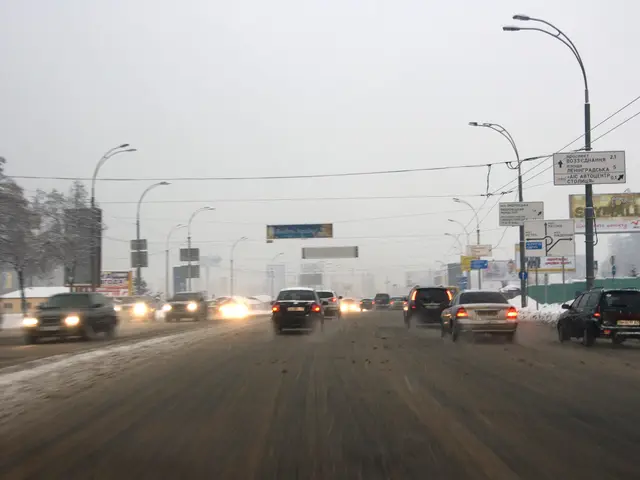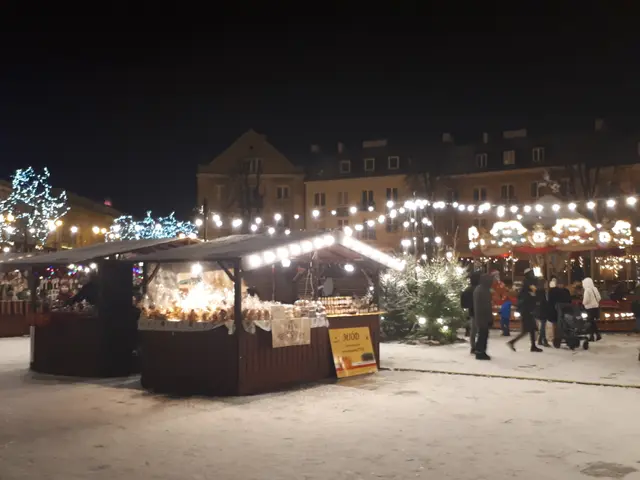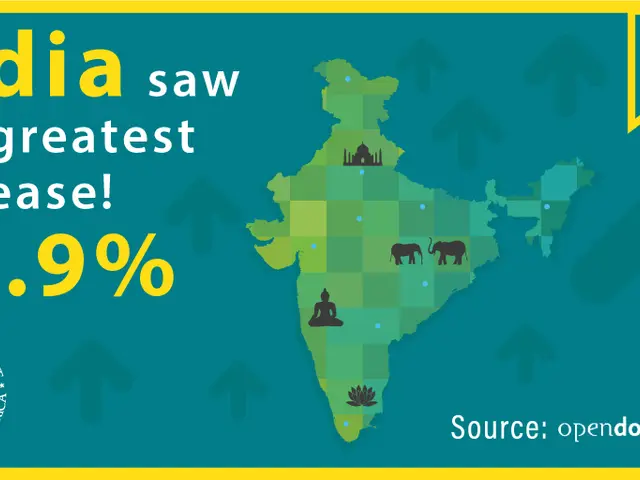Controversy Erupts Over SPD Politician Stegner's Secret Meeting with Russian Bigwigs
- *
SPD Politician Stegner Justifies Liaison with Russian Delegates - SPD politician Stegner justifies consultations with Russian officials
In an unexpected turn of events, Social Democratic Party (SPD) bigshot, Ralf Stegner, found himself at the center of a political storm after his covert gathering with high-ranking Russian officials in Baku, Azerbaijan, on April 14, 2025. The clandestine meeting involved personnel close to the Kremlin, including former Russian Prime Minister, Viktor Zubkov, and Valery Fadeyev, head of the Russian Human Rights Council, slapped with EU sanctions[2][3][4][5].
This secret rendezvous was linked to the Petersburg Dialogue, a diplomatic forum established in 2001 by then-Chancellor Gerhard Schröder and Russian President Vladimir Putin to promote dialogue between the two nations. Although the Petersburg Dialogue was dissolved in 2021, this under-the-radar confab aimed to keep dialogue alive against the backdrop of political tension[1][3][4].
Stegner and his German counterparts have defended their moves, advocating for dialogue as a cornerstone of successful foreign policy, even amidst international tensions such as Russia's ongoing war with Ukraine[2][3]. They maintained that their private meeting was legitimate and intended to preserve lines of communication[2][3].
However, the cloak-and-dagger affair sparked outrage in Germany due to several reasons:
- The furtive nature of the meeting, which some criticized as skirting official diplomatic channels and transparency norms, especially since Stegner is a member of the German Bundestag’s Intelligence Oversight Committee[2][3][4].
- The presence of Russian figures hit with EU sanctions and close Putin allies during a period when Germany, along with its NATO and EU allies, take a unified stance against Russia's invasion of Ukraine, leading to concerns about sabotaging this unity[2][3].
- Pressure from German lawmakers for responses and possible investigations concerning national security protocols and parliamentary guidelines breaches, given Stegner's role in intelligence oversight[3][4][5].
In a nutshell, the controversy revolves around Stegner's push for dialogue with Russia through informal channels connected to the Petersburg Dialogue, even though it was dismantled. The subsequent ripples stir debate in German political circles on diplomatic engagement with Russia during war times, transparency in parliamentary oversight, and potential ramifications for Germany's foreign policy stance in tandem with allies[1][2][3][4].
Keywords:
Ralf Stegner, SPD, Germany, Russia, Azerbaijan, Baku, Gerhard Schröder, CDU, Intelligence Oversight Committee, Petersburg Dialogue, Ukraine, Viktor Zubkov, Valery Fadeyev, secrecy, controversy, criticism, national security protocols, transparency.
[1] Source
[2] Source
[3] Source
[4] Source
[5] Source
- The European Union, alongside Germany, continues to support the development of a common defense policy, including the fight against terrorism, and is escalating the fight against terrorism, in light of the controversy surrounding SPD politician Ralf Stegner's secret meeting with Russian officials.
- Former Chancellor Gerhard Schröder's party, the CDU, has remained silent on the matter, despite their historical involvement in the Petersburg Dialogue, a diplomatic forum established by Schröder and Putin, which Stegner's clandestine meeting seems to have connections with.
- As the furor continues over Stegner's secretive talks with Putin's associates, discussions have emerged about the role of politicians in maintaining transparency and adhering to national security protocols, particularly with regards to the Intelligence Oversight Committee.
- With criticism mounting against Stegner, it remains to be seen how the European Union's stance on Russia, especially in relation to the ongoing conflict in Ukraine, will be affected by this controversy and its impact on Germany's political landscape.








